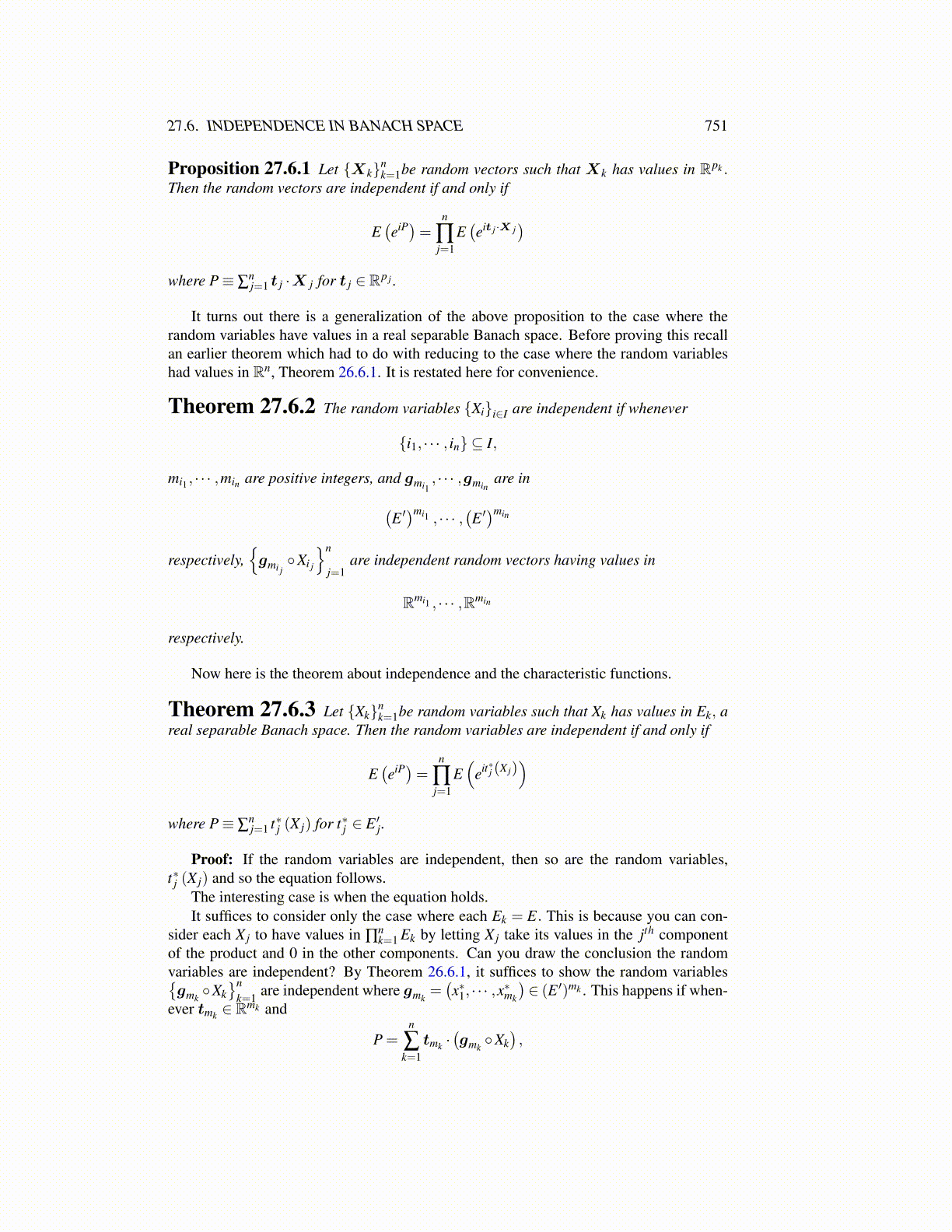
27.6. INDEPENDENCE IN BANACH SPACE 751
Proposition 27.6.1 Let {Xk}nk=1be random vectors such that Xk has values in Rpk .
Then the random vectors are independent if and only if
E(eiP)= n
∏j=1
E(eit j ·X j
)where P≡ ∑
nj=1 t j ·X j for t j ∈ Rp j .
It turns out there is a generalization of the above proposition to the case where therandom variables have values in a real separable Banach space. Before proving this recallan earlier theorem which had to do with reducing to the case where the random variableshad values in Rn, Theorem 26.6.1. It is restated here for convenience.
Theorem 27.6.2 The random variables {Xi}i∈I are independent if whenever
{i1, · · · , in} ⊆ I,
mi1 , · · · ,min are positive integers, and gmi1, · · · ,gmin
are in(E ′)mi1 , · · · ,
(E ′)min
respectively,{gmi j◦Xi j
}n
j=1are independent random vectors having values in
Rmi1 , · · · ,Rmin
respectively.
Now here is the theorem about independence and the characteristic functions.
Theorem 27.6.3 Let {Xk}nk=1be random variables such that Xk has values in Ek, a
real separable Banach space. Then the random variables are independent if and only if
E(eiP)= n
∏j=1
E(
eit∗j (X j))
where P≡ ∑nj=1 t∗j (X j) for t∗j ∈ E ′j.
Proof: If the random variables are independent, then so are the random variables,t∗j (X j) and so the equation follows.
The interesting case is when the equation holds.It suffices to consider only the case where each Ek = E. This is because you can con-
sider each X j to have values in ∏nk=1 Ek by letting X j take its values in the jth component
of the product and 0 in the other components. Can you draw the conclusion the randomvariables are independent? By Theorem 26.6.1, it suffices to show the random variables{gmk◦Xk
}nk=1 are independent where gmk
=(x∗1, · · · ,x∗mk
)∈ (E ′)mk . This happens if when-
ever tmk ∈ Rmk and
P =n
∑k=1tmk ·
(gmk◦Xk
),